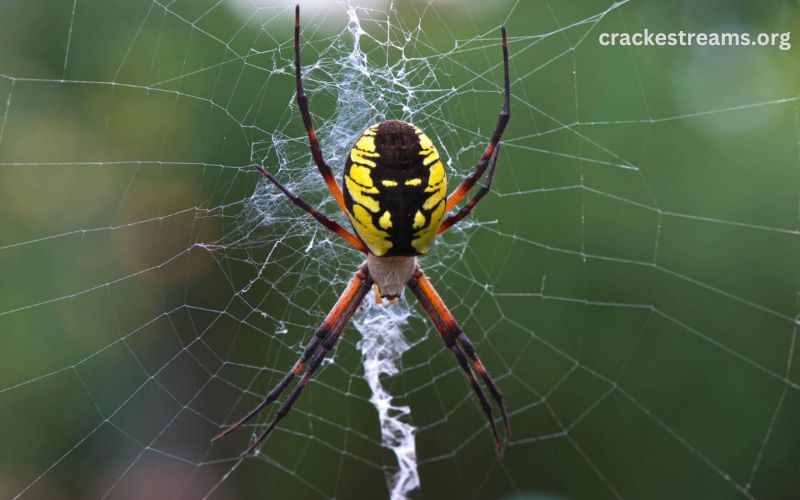When it comes to the creatures that inhabit our homes and gardens, spiders are often at the top of the list. Their eight legs and intricate webs can make even the bravest of individuals shudder. One common type of spider that you may come across is the garden spider. These arachnids are known for their vibrant colors and intricate web designs. While they play a crucial role in controlling the insect population, having them inside your home can be unnerving. In this article, we will explore how to safely remove garden spiders from your home, ensuring a peaceful coexistence.
Understanding garden spider behavior and habitats
Before we delve into the methods of removing garden spiders, it is essential to understand their behavior and habitats. Garden spiders, also known as orb-weaving spiders, are commonly found in gardens, yards, and other outdoor areas. They thrive in warm climates and are most active during the summer months. These spiders construct intricate circular webs to catch their prey, which primarily consists of insects like flies and mosquitoes.
Garden spiders are typically harmless to humans and prefer to avoid direct contact. They are non-aggressive and will only bite if they feel threatened. However, their presence indoors can be unsettling, especially for individuals who have arachnophobia or small children who may not understand the difference between harmless and venomous spiders.
The importance of safely removing garden spiders
While garden spiders may not pose a direct threat to humans, it is important to safely remove them from your home for several reasons. Firstly, their webs can be an eyesore and make your living space appear unkempt. Secondly, if left unchecked, garden spiders can lay eggs indoors, leading to an infestation. Lastly, some individuals may have severe arachnophobia, causing significant distress and anxiety. By safely removing garden spiders, you can create a more comfortable living environment for yourself and your family.
Common misconceptions about garden spiders
Before we move on to the step-by-step guide for removing garden spiders, let’s address some common misconceptions about these arachnids. One prevailing myth is that all spiders are venomous and dangerous. In reality, most garden spiders are harmless to humans and play a vital role in controlling the insect population. Another misconception is that garden spiders are aggressive and will attack if provoked. This is far from the truth, as garden spiders are more likely to flee than engage in a confrontation.
It is also important to note that garden spiders are not attracted to dirty or unkempt homes. They are simply drawn to areas where insects are abundant, such as gardens or areas near bright lights. By debunking these misconceptions, we can approach the removal process with a clearer understanding of garden spider behavior.
Step-by-step guide to safely removing garden spiders from your home
Now that we have a better understanding of garden spiders and the reasons for their removal, let’s discuss a step-by-step guide to safely remove them from your home.
- Identify the spider: Before taking any action, it is crucial to identify the spider species correctly. This will help you determine the level of risk and the appropriate removal method.
- Create a barrier: To prevent garden spiders from entering your home, seal any cracks or gaps in windows, doors, and other entry points. This will make it harder for them to find their way indoors.
- Use a spider catcher: If you come across a garden spider indoors and wish to remove it without causing harm, consider using a spider catcher. These devices allow you to capture the spider without touching it and release it outside safely.
- Vacuum method: Another effective method is to use a vacuum cleaner with a long attachment. Gently suck the spider into the vacuum and dispose of the bag or empty the canister outside to prevent reentry.
- Natural remedies: If you prefer a more natural approach, there are several home remedies that can deter garden spiders. These include essential oils, vinegar, and citrus peels.
- Seek professional help: If you have a severe garden spider infestation or are uncomfortable handling them yourself, it is advisable to seek professional pest control services. They have the expertise and tools to remove spiders safely and effectively.
Natural remedies for deterring garden spiders
If you are keen on deterring garden spiders from entering your home altogether, there are several natural remedies that you can try. These remedies are safe for both humans and the environment, making them an ideal choice for those seeking a chemical-free approach.
- Essential oils: Spiders are known to dislike certain scents, such as peppermint, tea tree, and lavender. By mixing a few drops of these essential oils with water and spraying the solution around entry points and potential spider habitats, you can deter them from entering your home.
- Vinegar: A mixture of vinegar and water sprayed in areas where spiders are likely to congregate can be effective in deterring them. The strong smell of vinegar is known to repel spiders.
- Citrus peels: Spiders are also repelled by the scent of citrus. Placing citrus peels near windowsills, doorways, and other entry points can discourage spiders from venturing indoors.
Preventing garden spiders from entering your home
Removing garden spiders from your home is only the first step. To prevent them from returning, it is crucial to take preventive measures. Here are some tips to make your home less appealing to garden spiders:
- Keep a clean and clutter-free environment: Spiders are attracted to clutter, so keeping your home clean and organized will make it less inviting for them.
- Regularly remove spider webs: Take the time to remove spider webs from your home’s exterior regularly. This will discourage spiders from building their webs in the first place.
- Install screens: To prevent spiders from entering through windows and doors, install screens that are in good condition and fit tightly.
- Reduce outdoor lighting: Bright outdoor lights attract insects, which, in turn, attract garden spiders. Consider using lower intensity or yellow-colored lights to reduce the insect population and deter spiders.
Professional pest control options for garden spider removal
If you find yourself facing a persistent garden spider problem or are uncomfortable handling them yourself, it may be necessary to seek professional pest control options. Pest control professionals have the knowledge and expertise to identify the spider species, locate their habitats, and implement effective removal methods.
When choosing a pest control service, ensure they are licensed and experienced in handling spider infestations. They should use environmentally friendly methods and provide you with a clear plan of action. Remember to inquire about any necessary follow-up treatments to ensure long-term removal and prevention.
Tips for maintaining a spider-free home
Once you have successfully removed garden spiders from your home, it is essential to maintain a spider-free environment. Here are some tips to help you achieve this:
- Regular cleaning: Regularly clean your home, paying attention to corners, ceilings, and other areas where spiders may build their webs.
- Keep vegetation away from the house: Trim any plants or shrubs that are in close proximity to your home. This will reduce the chances of spiders making their way indoors.
- Consider natural spider repellents: Continuing to use natural remedies, such as essential oils or vinegar, can help deter spiders from reentering your home.
- Inspect your home regularly: Conduct routine inspections of your home’s exterior to identify and seal any potential entry points for spiders.
Conclusion
Garden spiders may be fascinating creatures when observed in their natural habitats, but having them inside your home can be unsettling. By following the step-by-step guide and incorporating preventive measures, you can safely remove garden spiders and create a spider-free living environment. Remember, it is important to prioritize your safety and comfort while respecting the crucial role spiders play in maintaining the ecological balance. With these strategies in place, you can confidently coexist with garden spiders while keeping them outside where they belong.
CTA: If you found this article helpful, be sure to share it with your friends and family. Together, we can create spider-free homes and gardens.




